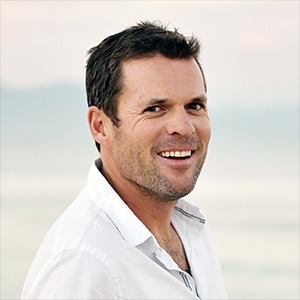As part of the Kenyan delegation, Susan, John & Raymond had the distinct pleasure of attending the much-awaited Digital Initiatives for African Centres of Excellence (DIGI – FACE) Kick-off Meeting held in South Africa by the world-renowned university, Nelson Mandela in Port Elizabeth. The meeting brought different scholars whose vast experience in pursuit of higher education was not only inspiring but an open door to insightful thought on the direction higher education needed to take, chiefly digital in nature, in order to stand the test of time for African Centres of Excellence (CoE). Precisely, the project aim is to develop and put into action digital learning strategies across Africa. A big part of DIGI-FACE is to enhance digital capacities of lecturers and academics and that the training of trainers (ToT) is a very crucial pillar of the project.
The kick-off meeting took place on March 3-6 with delegates drawn from universities in South Africa, Niger, Senegal, Ghana, Kenya, Tanzania, Congo, Mali, Namibia as well as Germany. Pursuant to achieving the goal, the delegates consisted of the Centre of Excellence Project leaders, Project Coordinators, Curriculum developers and the IT personnel. This was a brilliant mix in order to make the matrix of content development and dissemination complete.
At the opening session the delegates were taken through the overall aims of the initiative by the lead persons notably, Prof Ewald Eisenberg, representing project lead partner Kehl University in Germany; Prof Bernd Siebenhuener, German academic from Carl von Ossietzky University Oldenburg and Prof Paul Webb, Project Leader of the East and South African German Centre of Excellence for Educational Research Methodologies and Management(CERM-ESA). A quick rejoinder on the collaborative approaches to capacity development and digitalization was brought into perspective by Professor Michael Samuel from the University of KwaZulu Natal who also doubled up as the event moderator. The meeting was officially opened by deputy vice-chancellor, learning and Teaching, Prof Cheryl Foxcroft, Mandela University who emphasized the need for all of us to make provisions for students to learn in digital spaces.
With the elaborate intro, the sessions that followed included the delegate’s reflections on their motivations; on-line learning experts presentations that shed more light into the digital classrooms; practical sessions of designing an interactive online session; Centres action steps, collaborations and partnerships; business plan; delegates visions and recommendations. The sessions were not only in-depth but quite mind-boggling in terms of reflections on the core challenges such as geographical complications, equipment deficiencies alongside proposed methodologies for accomplishing the DIGI-FACE project.
The project’s aspiration for the future could have consequences that undoubtedly would bring positive change and especially education without borders. The goal for the meeting was not only a means of documenting the problems faced by CoEs, nor was it an opportunity for CoEs to complain about the situation that they face, rather it was a critical discussion with actionable points aimed at reducing these challenges and possibly eliminating them entirely with guidance from a knowledgeable partner.
The discussions proposed scholars to take up the opportunity to create content on their own terms, with assistance from IT and Multimedia experts within the Institution, but with an eye for great and reusable content to a student, market to generate revenue for the Centre’s sustainability. The market out there consists of students willing to assimilate new information faster, with a lowered barrier to entry such as cost and time, and the reduction of time spent by students closing the physical geographical gap courtesy of antiquated forms of education.
Content in this context indicates the use of video, text, and interactive media as a delivery mechanism. By integrating open source software such as Moodle, specifically built to handle demands of heavy course material, it is by no means an end to itself, but rather the first step that scholars can take in order to achieve their personal goals and of the institution. Another valuable resource was H5P.org which utilized the power of HTML5 to create, share and reuse the content in a browser. The H5P platform is particularly useful since it can be integrated with MOODLE for added functionality.
As the conference progressed, we came to the understanding that many CoEs already have course material ready for digitization but lack the channels to take their course materials online. On that note, the question of sustainability arose on numerous occasions. Naturally, other questions were derived from this such as, would the funding partner, DAAD, provide sustainable solutions to the CoEs or would the CoEs be equipped with their own means of sustainability mutually beneficial to both students and CoEs. These were just a few questions out of the many that came up. However, they were not all to be answered conclusively in this first meeting but rather at an ongoing basis customized to each CoEs needs. Furthermore, evaluations carried out at the end of the meeting could have captured more concerns from the delegates. At the close of the meeting, we were treated to a delicious dinner and thrilling excursion that cemented our continental bonds as well as giving us a chance to appreciate the beauty of Port Elizabeth and South Africa at large. Honestly, it was a great life experience and a real eye-opener for us all.
In conclusion, the flow of events throughout the meeting was pretty seamless under a powerful organizing team notably Prof. Eisenberg, Prof. Webb, Mike Swanepoel, Merlin Kull, Ayanda Simayi just to mention a few. DIGI-FACE is headed for imminent success. We say a big ‘THANK YOU ‘to DAAD under the auspices of Dr Dorothee Weyler.
[Best_Wordpress_Gallery id=”36″ gal_title=”My participation at the Kick-Off Meeting – DIGI-FACE (Susan)”]
You must be logged in to rate posts.



